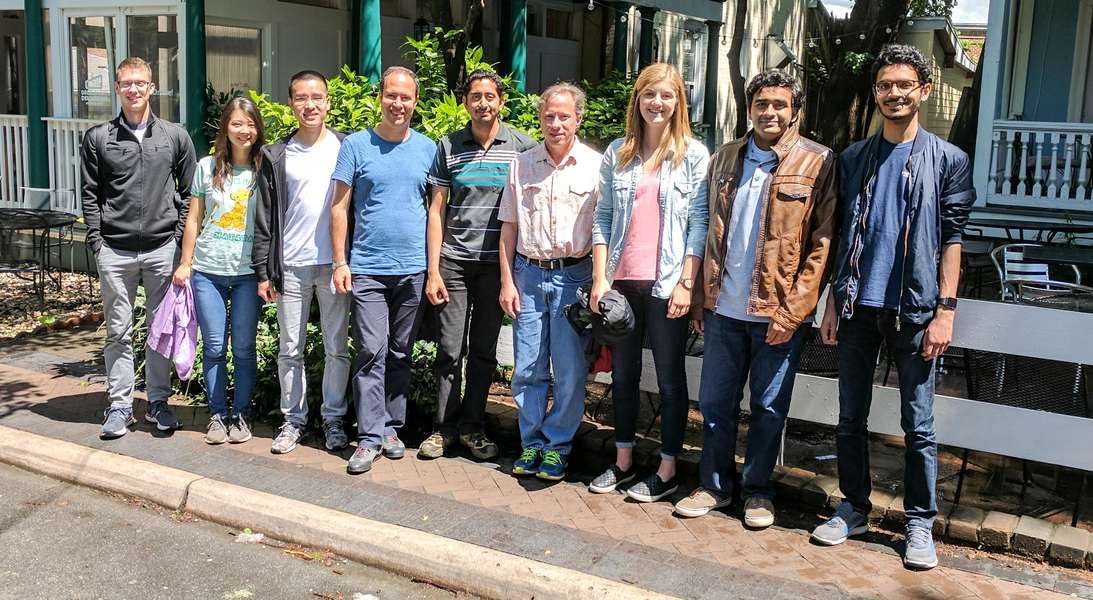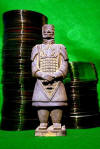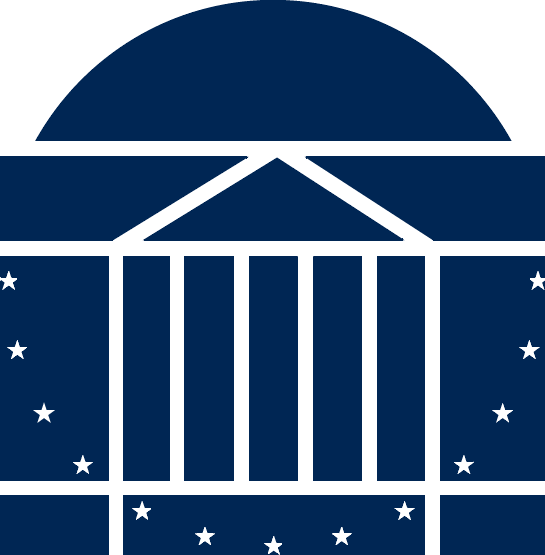|
David Evans
Contacting Me
| Schedule a Meeting
Recommended reading for: |
My research group's current work focuses mainly on understanding and improving the trustworthiness of machine learning when used in adversarial contexts, including privacy (what can adversaries learn about private training data from interacting with a trained model), security (what can adversaries do to cause a model to misbehave in targeted ways), and other properties we may wish to audit models for such as fairness. Other areas of recent interest include secure multi-party computation.
In Fall 2024, I am teaching a graduate-level seminar on the Evaluation Crisis in Computer Science. In Spring 2025, I will teach cs1010: Computing for Future Leaders and Global Citizens (which I first taught in Spring 2024). Recently I have taught Risks and Benefits of Generative AI and LLMs (Fall 2023), cs3102: Theory of Computation, and cs4501: Computational Biology / Biological Computing (a new course I developed to learn about interesting things going on in biology). For earlier courses, see my Courses page.
I have written two introductory computer science books, both of which are available as free downloads under a Creative Commons license, and as nicely printed color versions from Amazon.com:
 | Dori-Mic and the Universal
Machine! (With Illustrations by Kim Dylla), 2014 A Tragicomic Tale of Combinatorics and Computability for Curious Children of All Ages "The
BEST babies' book about computational universality I've read."
|
 | Introduction to Computing: Explorations in Language, Logic, and Machines Introductory computer science coursebook, 2007-2012. |

|
A Pragmatic Introduction to Secure Multi-Party Computation NOW Publishers, December 2018. [PDF] |
I was Program Co-Chair for the 2022 and
2023 IEEE
European Symposia on Security and Privacy. Previously, I was Program Co-Chair for
the 2017 ACM Conference on
Computer and Communications Security (CCS). I organized
the NSF SaTC PIs'
Meeting 2015 and was program co-chair for
the 30
Research
|
Students
All it took was for a University of Virginia student to finally outsmart
the popular SMART cards... Falling into the wrong hands, this security
loophole can be and will surely be used in high profile heists and
break-ins, seemingly straight from a James Bond movie.
Hacked
RFIDs Render Smart Cards Less Smarter, TrendLabs Malware Blog,
18 March 2008.
Except for the wire problem, the computer was a success. We could
solve this with larger wires and by growing hair to cover
our ears, a conspicuous style at the time, or persuade our
reluctant wives to "wire up". We adjourned to consider.
Edward
Thorp, on building computers with Claude Shannon
I am a little troubled about the tea service in the electronic computer
building. Apparently the members of your staff consume several times as
much supplies as the same number of people do in Fuld Hall and they have
been especially unfair in the matter of sugar.... I should like to raise
the question whether it would not be better for the computer people to
come up to Fuld Hall at the end of the day at 5 o'clock and have their
tea here under proper supervision.
Letter to John von Neumann (shown in George Dyson's talk on The birth of the computer)
|
I have the privilege of working with a team of extraordinary students, including both graduate and undergraduate students. We are part of the NSF Frontier Center for Trustworthy Machine Learning (with the University of Wisconsin, UC Berkeley, UC San Diego, and Stanford) and the NSF AI Institute for Agent-based Cyber Threat Intelligence and Operation (ACTION) (led by UC Santa Barbara).  Security Research Group Lunch (5 May 2017)
Security Research Group Lunch (5 May 2017)Bill Young, Haina Li, Weilin Xu, Mohammad Etemad, Bargav Jayaraman, David Evans, Helen Simecek, Anant Kharkar, Darion Cassel If you are a UVA undergraduate or graduate student interested in joining my research group, please look over our project pages (linked below), browse our group blog, and send me email to arrange a meeting or drop by my office hours. If you are considering applying to our PhD program, please read my advice for prospective research students. If you think you are ready for graduate school, you may also want to try our previous pre-qualification exam [PDF].  Security Research Group (19 January 2016) Jack Doerner, Samee Zahur, Mahnush Movahedi, Mohammad Etemad, Haina Li, Weilin Xu, Karen Pan Everyone is welcome at the Security Research Group meetings. To get announcements, join our Teams Group (any @virginia.edu email address can join themsleves, or email me to request an invitation).  Research Group Lunch (6 May 2015)
 Students and Alumni at USENIX Security 2011 Our research is primarily funded by National Science Foundation research grants. We are also grateful for industrial research awards from Lockheed Martin, Oracle, Google, and Intel and in-kind support from Amazon and Microsoft. |
Teaching
 I won the Harold Morton Jr. SEAS Award for Teaching (2003-4), an
All-University
Teaching Award (2008), and an Outstanding Faculty Award (2009) from the State Council of Higher Education for Virginia. This essay explains my teaching
philosophy.
I won the Harold Morton Jr. SEAS Award for Teaching (2003-4), an
All-University
Teaching Award (2008), and an Outstanding Faculty Award (2009) from the State Council of Higher Education for Virginia. This essay explains my teaching
philosophy.
I was the Founding Director of the Interdisciplinary Major in Computer Science, which became the most popular major taught by the Engineering School.
I believe public universities have a mission to provide open education, and make all of my teaching materials openly available. I published an open introductory computing textbook based on the cs1120 course.
Selected Courses at UVA (Full List)
Selected External Courses
I developed two open on-line courses for Udacity: cs101: Building a Search Engine (Prospect Magazine, Chronicle, more...) and cs387: Applied Cryptography (according to InformationWeek, this the #1 Online Class To Pump Up IT Careers, although it is more meant as a fun introduction to cryptography).
I've also taught some short external courses:

More
I've been at UVA since fall 1999, after completing my PhD, SM and SB degrees at MIT.
My most visited page is my Advice for Prospective Research Students. I have also written some advice for new (and disgruntled) professors on How to Live in Paradise, and collected my favorite advice from others.
My academic genealogy traces back to Gottfried Wilheim Leibniz.
I have taken some pictures including: Yellowstone, Glacier, Death Valley, Yosemite, Lawn Lighting, Nature near Charlottesville, China, and Bletchley Park. I also have pictures from my trips to World Cups: France 1998, Korea 2002, South Africa 2010. Now, I mostly take pictures of my son and daughter.
Family
I live in Charlottesville, VA with my wife, two children, and mother-in-law.
Our daughter, Dorina Michelle, was born in June 2012. She made her first original computer science contribution at only eight months old, discovering the non-equivalence of the Kleene-* and Kleene-X operators. Since then, she has been focusing on languages and inputs and outputs, but hasn't completely neglected theoretical computer science.
Our son, Maxwell Nicholas was born in March 2015. His early accomplishments focused on minimizing interruptions in distributed systems processes, collision-free hashing, odor-optimized garbage collection, and balanced climbing trees.
Family pages:
- Blue Ridge Boost — my wife (and daughter's) coding classes for kids and math tutoring
- Art Talks (by my Mom).
- Science Serving Society (my Dad's site, focusing on traffic safety)
- NeuroKitchen Arts Collective (my sister's project)
- My brother's blog




